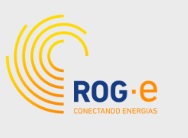
Debates on the second day of ROG.e highlight how these energy sources aid the process of energy evolution.
T&B Petroleum/Press Office IBP
 Petrobras' logistics director, Claudio Schlosser, emphasizes that biorefineries are fundamental to the national energy transition due to their low-carbon solutions. "We have already developed R5 diesel, composed of renewable solutions (vegetable oil and animal fat), which has a lower cost with sales of 10 million liters per month. This product already supports decarbonization. Additionally, our position is very privileged. The country has three harvests per year, which promotes energy supply without impacting the food chain," the executive noted during the panel 'The Challenges of Future Fuel and Biofuel Supply' on the second day of ROG.e 2024, one of the largest energy events in the world, which runs until Thursday (26) at the Olympic Boulevard in Rio de Janeiro.
Petrobras' logistics director, Claudio Schlosser, emphasizes that biorefineries are fundamental to the national energy transition due to their low-carbon solutions. "We have already developed R5 diesel, composed of renewable solutions (vegetable oil and animal fat), which has a lower cost with sales of 10 million liters per month. This product already supports decarbonization. Additionally, our position is very privileged. The country has three harvests per year, which promotes energy supply without impacting the food chain," the executive noted during the panel 'The Challenges of Future Fuel and Biofuel Supply' on the second day of ROG.e 2024, one of the largest energy events in the world, which runs until Thursday (26) at the Olympic Boulevard in Rio de Janeiro.
For the executive, logistics is one of the main challenges in reducing carbon intensity. In the Midwest region, he cited how the growth of agribusiness leads to increased productivity and higher energy consumption, requiring decarbonization initiatives. Schlosser also advocates for certification so that low-carbon Brazilian products can access new global markets.
Marcelo Cordaro, COO of Acelen, believes that SAF (sustainable aviation fuel) is an immediate solution for air mobility, offering cost reduction without the need for significant investments in aircraft electrification. He highlights macaúba as a raw material with great potential. "With an 80% reduction in greenhouse gases (GHG) and a planting process that captures up to 60 million tons of carbon, macaúba promotes a sustainable environmental solution with social impact through its cultivation and oil extraction. We aim to make macaúba a competitive biomass in the short term."
Juliano Tamaso, Vice President of Supply Chain at Raízen, emphasized the growth and improvement of corn ethanol, with a production of over 10 million liters per year in Brazil. "Our logistics chain is monitored in real time, which is essential for precise supply and delivery, reducing the cost of renewable fuel," he said.
Gas regulation boosts the gas market
Sylvie D'Apote, Executive Director of Natural Gas at the Brazilian Institute of Petroleum and Gas (IBP), emphasized that the 2021 Gas Law has already created the conditions and regulatory context for the opening of the natural gas market. In the first half of 2024, more than 500 gas transport contracts were signed, compared to 39 in 2020. "Another example is that, in 2020, the dominant player sold 100% of the gas traded in the transport network. By March of this year, other suppliers held 25% of this market, meaning we are moving toward market liberalization with a greater diversity of suppliers, which leads to more competition and more competitive prices." Sylvie also pointed out the complexity of the gas market, which requires public policies and regulation at the federal level, as well as advancements at the state level, to ensure competition on the demand side through the free market.
From the federal government’s perspective, Edie Andreeta Junior, advisor at the National Secretariat for Oil, Natural Gas, and Biofuels at the Ministry of Mines and Energy (MME), highlighted the government’s efforts to develop the natural gas market by increasing supply and competitiveness. "Our expectation is to establish fair and appropriate compensation for gas infrastructure, harmonize federal regulation with state regulations, and create a competitive internal market with low prices."
Celso Guerra, Undersecretary of Regional Development for the Government of Espírito Santo, presented the state's potential for gas market growth, noting the advances made through the ES Mais+Gás program. "We already have 7% of the industry in the free gas market, and we are moving toward 90% in the coming years. We saw R$100 million in investments in the first year of the program, leading to significant expansion of the distribution network. We also engaged the private sector in various government bodies to help evaluate and build public policy."
As the largest industrial market in the country, the state of São Paulo is advancing in opening the gas market, with biogas as an energy source to drive growth and decarbonize its gas demand. According to Marisa Barros, Undersecretary of Energy and Mining at São Paulo’s Secretariat for the Environment, Infrastructure, and Logistics, the state has a strong energy vocation, and public policy consolidation is essential. "We have the ethanol plant, which today is a biopark, a major energy producer, in addition to hydraulic and solar sources. We also have the potential to produce almost half of what the state currently consumes in biogas. In this context, public policy provides market predictability and gives investors more security.
Innovation is key to regional development
Juliano Dantas, Vice President of Technology and Innovation at Eletrobras, presented at the main stage of the iUP Innovation Connections, a parallel event at ROG.e, the technology hub that Eletrobras maintains in the Northeast region. Eletrobras currently operates 73,795 km of transmission lines, representing 38% of the total in the country.
Eletrobras operates a floating solar power plant in Sobradinho (BA); an intelligent system with storage integrated with a wind turbine and a photovoltaic plant in Casa Nova (BA); a central tower heliothermal plant with high-concentration photovoltaic technology in Petrolina (PE); and a hybrid energy storage system using batteries integrated with the photovoltaic plant.
"The heliothermal plant is a pioneering solution connected to the oil and gas sector. It is a partnership with SLD Brasil, which plans to hybridize the use of the central tower integrated with high-concentration photovoltaic technology and thermal storage with water, with power generation through the Organic Rankine Cycle," explained Dantas.
According to the executive, the technology hub allows for the replication of opportunities from the Innovation Grid, Eletrobras' innovation program that addresses the company’s challenges, problems, and opportunities. "First, we announce the challenges locally. Then, we listen to what institutions, academia, and startups have to say. We activate local startup and student communities and promote challenges. We offer opportunities for these individuals to intern and even be employed by Eletrobras," Dantas detailed.
Drones and robots in the energy industry
Drones and robots are great allies in the energy industry for reducing costs and increasing efficiency. However, to achieve the best results, it is necessary to invest in research and development to find the right applications. "R&D management is specific, complex, and considers the relationship between costs and deadlines," said Luiz Acosta, R&D Manager at XMBots.
He participated in the panel "Robotics and Drones: Revolutionizing the O&G Sector," held at iUP Innovation Connections. Rafael Coelho, co-founder and CEO of Tidewise, who was also present, emphasized that for these initiatives to succeed, partnerships between different entities are essential. "We believe in collaboration between industry, government, and academia, which is essential for the actions we want to implement. Because of this collaboration with educational institutions, we encourage our employees to participate in master's and PhD programs," he explained.
About ROG.e
ROG.e is one of the largest energy sector events in the world. Organized by the Brazilian Institute of Petroleum and Gas (IBP), the event is expected to welcome more than 70,000 visitors from 65 different countries, including industry leaders, authorities, investors, academics, and other audiences. The event will occupy 8 warehouses, with more than 550 exhibitors, 7 parallel events, and a Congress.
ROG.e 2024 is sponsored by Petrobras, Shell, TotalEnergies, Equinor, Galp, Origem, Brava, Petronas, Prio, BP, Chevron, ExxonMobil, Modec, Repsol Sinopec Brasil, SBM Offshore, Acelen, Eletrobras, Excelerate Energy, Ipiranga, Pan American Energy, Vibra, Dell, Nvidia, Naturgy, TechnipFMC, TBG, Trident Energy, ABB, Construtora Elevação, Compass, Foresea, Huawei, Karoon Energy, OceanPact, Perbras, Subsea7, TAG, Transpetro, Vallourec, Renave, as well as participation from the Federal Government.

Contact us